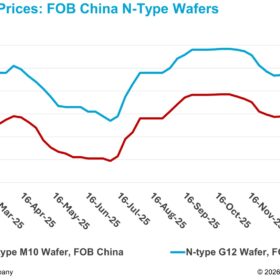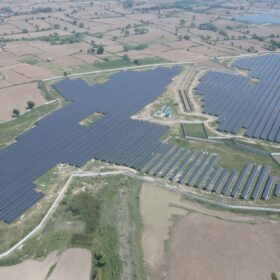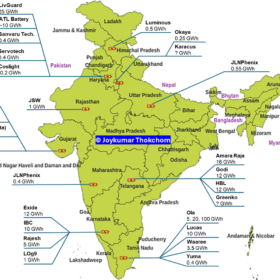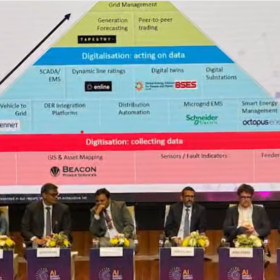Inside the PV recycling black box
How PV modules are treated at the end of their life is an increasingly important issue, but some recycling practices leave a lot to be desired. Scott Azevedo from Intertek CEA explores how asking the right questions, paying closer attention to end-of-life treatment, and steering volume toward good recyclers can have positive long-term consequences for the solar industry.
India’s electricity transition unfolds unevenly across states
A new report by IEEFA and Ember finds that India’s electricity transition is unfolding differently across states, shaped by variations in resource endowments, development pathways, and institutional capacities. While some states are already leading in renewable energy deployment and grid readiness, others are building momentum, presenting significant opportunities for accelerated progress through targeted, state-specific policy interventions.
China wafer prices fall for fourth week as discounting deepens under inventory pressure
In a new weekly update for pv magazine, OPIS, a Dow Jones company, provides a quick look at the main price trends in the global PV industry.
India adds 7.8 GW of open access solar in 2025
Cumulative open-access (off-site commercial and industrial) solar installations surpassed 30 GW as of Dec. 31, 2025.
IEC-based technical specifications needed for second-life PV module market
The latest report from the International Energy Agency’s Photovoltaic Power Systems Programme says second-life PV modules have the potential to reduce waste and extend the value of solar assets, but their market today remains underdeveloped and requires advances in technical qualifications, scalable reuse infrastructure and supportive policy frameworks.
India’s 2030 battery gigafactory ambition: Strengths, bottlenecks and solutions
The number of operational battery gigafactories will increase significantly, with more than 30 manufacturing sites expected to be in operation by 2030, targeting a total production capacity exceeding 290 GWh. However, challenges such as raw material and skilled labor shortages, insufficient R&D investment, and a lack of long-term strategic planning remain.
Renewables’ share to reach 26% of total power generation by FY2026-end: Infomerics Ratings
Infomerics Ratings expects renewable energy (RE) to account for 26% of India’s total power generation by the end of FY2026, despite softer demand conditions.
ISA unveils global mission to help 120+ member countries fast-track AI-enabled clean energy
The International Solar Alliance (ISA) convened a high-level session at the India AI Impact Summit 2026 to advance global dialogue on the transformative role of Artificial Intelligence (AI) in the clean energy transition.
India’s blueprint for sustainable solar success
By embedding quality benchmarks into procurement and manufacturing incentives, policymakers are ensuring that India’s energy transition is durable, not disposable. The focus has moved from rapid installation to long-term reliability — a sign of sectoral maturity.
Advait Energy Transitions posts consolidated revenue of INR 486.33 crore for 9MFY26
Advait Energy Transitions Ltd has reported strong financial performance for the third quarter and first nine months of FY26, driven by execution momentum across its power transmission solutions and new & renewable energy businesses.














